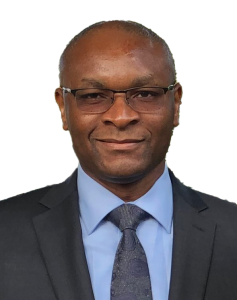BLACK HISTORY MONTH FACULTY SPOTLIGHT | Muswamba Mwamba
Black History Month is celebrated every February as a time to commemorate and acknowledge the Black Americans who played a critical role in the founding and shaping of the United States.
Union Institute & University is participating in the celebration by spotlighting members of our faculty and staff.
FACULTY SPOTLIGHT | Muswamba Mwamba
Tell us about your role at Union Institute & University
Muswamba Mwamba is a global citizen who lived in multiple cities on three continents. As a Master of Arts faculty in Applied Nutrition and Dietetics, Health & Wellness, and Human Lactation Studies, he brings to Union’s students a global perspective on people’s most precious asset, their health.
What does Black History Month mean to you?
Black history influences me personally, my family, and my native country, the Democratic Republic of Congo. William Henry Sheppard (March 8, 1865 – November 25, 1927), an African American missionary for the Presbyterian Church, was the first person to publicize the atrocities committed against the Luba and other Congolese peoples by the Belgian King Leopold II. My grandparent was trained as a mason by Presbyterian missionaries and spoke English fluently in a remote village of the Luba tribe of the early 1900s. William Henry Sheppard spent 20 years in Congo Free State, as it was known back then. His efforts contributed to the contemporary debate on European colonialism and imperialism in the region, particularly among African-American communities. However, his human rights actions are poorly celebrated in the literature. As a Christian Congolese-American, I salute the legacy of this giant of the Black History movement who needs to be commemorated in DR Congo.
Is there a Black leader, past or present, who inspires you, and why?
I have heard about Malcolm X in many discussions and debates without any particular interest. After reading his autobiography, my admiration for his growth, transformation, and leadership grew. Many books often portray national heroes as people born with a special omen that predicted their future capabilities. Malcolm X’s early life was far from noble. Yet, when he found his “way,” he built a “nation” in just a few years, not a generation. Upon his return from Africa in the Fall of 1964, he pointed to his biographer the vision of how he planned to internationalize the Black American problem “to make Africans feel their kinship with Afro-Americans.” A vision that is still far from being achieved.
What advice do you have for people looking to start their careers or become a leader?
Leaders are readers and learners. Malcolm X taught himself to read and write by copying the entire dictionary. We know the results of his influence. For students aspiring for a leadership role, remember that what we don’t know is immensely vaster than what we know. Leaders can only bring their followers where they have been. My message to future leaders is simple, read practically, strategically, or purposefully. For God’s sake, Read!